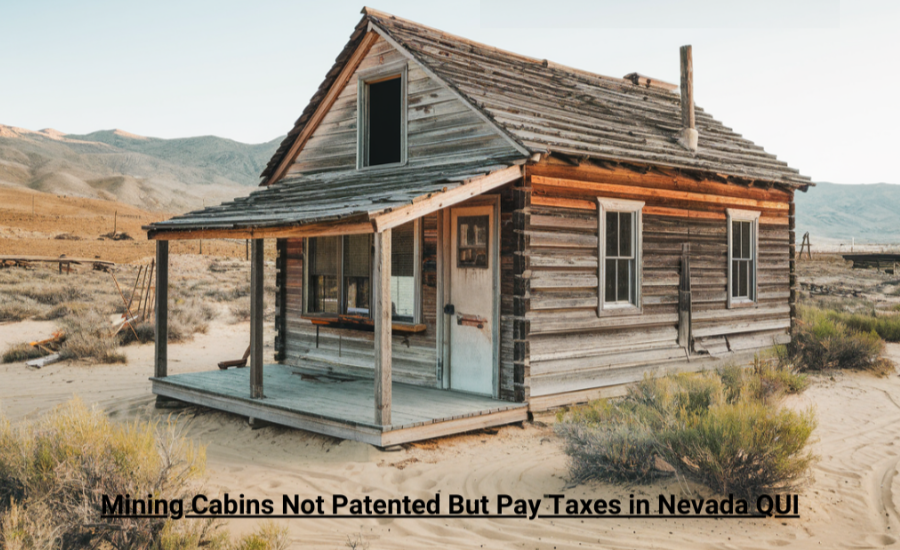Tucked away in Nevada’s rugged terrain, unpatented mining cabins tell a fascinating tale of both history and survival, deeply intertwined with the state’s rich mining heritage. These cabins, found in some of the most remote areas, were originally constructed to house miners and have stood the test of time as reminders of Nevada’s deep connection to the mining industry. Although these structures lack formal patents, they are still subject to local taxes, a fact that introduces an interesting contradiction between property rights and their economic role.
Despite not holding a legal patent, these cabins manage to contribute to the local tax system, raising key questions about their ownership and financial impact. Exploring the reasons behind this system highlights a unique aspect of the state’s mining legacy, where tradition meets modern economics. The continued presence of these cabins, along with their tax contributions, creates a distinctive situation that impacts not only miners but also the broader communities that benefit from this historical and economic arrangement.
By taking a closer look at these cabins and their role in the local economy, we uncover a deeper understanding of Nevada’s mining culture and the intricate balance between preserving history and driving economic growth.
The Mining Landscape In Nevada
As the top gold producer in the U.S., Nevada has a deep-rooted history in mining that dates back to the 1800s. Throughout the state, the expansive terrain is peppered with numerous mining claims, many of which feature cabins built by miners to support their operations. These structures have played a critical role, serving as temporary shelters, workspaces, or even homes for those working the mines.
The legal classification of these cabins can be quite complex, especially when considering the distinction between patented and unpatented mining claims.
Understanding Patented vs. Unpatented Mining Claims
To truly grasp why certain mining cabins in Nevada may be unpatented but still subject to taxes, it’s essential to first comprehend the difference between patented and unpatented claims.
Patented Claims: A patented mining claim grants full private ownership of the land, following approval by the federal government. Once a claim is patented, the miner has the authority to use the land however they wish—whether for mining, building structures, or selling it for other purposes. Acquiring a patent involves navigating a rigorous process that requires proof of the land’s value, along with necessary permits. Patented claims are rare due to the complexity and cost involved.
Unpatented Claims: On the other hand, unpatented mining claims grant miners the right to extract minerals from the land but do not convey actual ownership. The federal government retains control of the land, and miners are permitted to use it only for specific mining activities. Although cabins may be built on these claims to support operations, the miners do not enjoy the same level of ownership as they would with a patented claim.
This distinction helps explain why miners can build cabins on unpatented claims and still be responsible for paying taxes, even though they do not own the land itself. Understanding these legal nuances provides greater insight into the relationship between mining, land rights, and economic contributions in Nevada.
Understanding Mining Claims: Patented vs. Unpatented
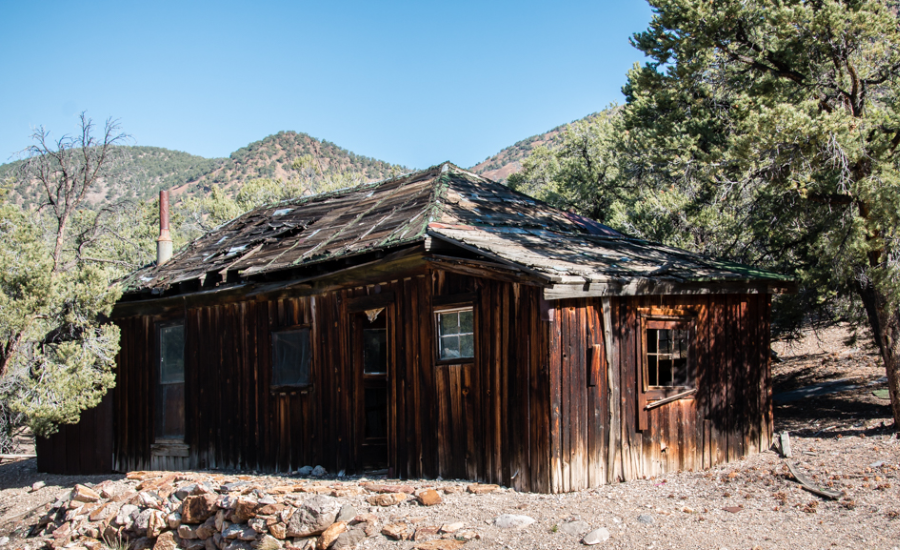
When discussing the unique situation of mining cabins that are not patented but still pay taxes in Nevada, it’s essential to first differentiate between patented and unpatented mining claims.
Patented Claims: A patented mining claim grants the miner full ownership of a specific piece of land, following approval from the federal government. Once patented, the claim gives the owner complete control over the land, allowing for various uses such as building cabins, selling the property, or using it for other purposes. However, patented claims are relatively rare and require a rigorous process that includes proving the land’s value and acquiring necessary permits.
Unpatented Claims: Unlike patented claims, unpatented mining claims only provide miners with the right to explore and extract minerals from the land, while the federal government retains ownership. Miners are allowed to build cabins and other structures necessary for their operations, but they do not possess the same legal ownership rights as those with patented claims.
The distinction between these two types of claims is critical as it directly affects the legal obligations and tax responsibilities of miners and cabin owners.
The Legal And Tax Implications Of Non-Patented Mining Cabins
Exploring the issue of mining cabins that are not patented but still subject to taxes in Nevada requires an understanding of the legal framework that governs these structures. Cabins built on unpatented claims operate under different rules than those on patented land, which directly impacts the taxes they incur.
Tax Requirements
While the federal government retains ownership of the land on unpatented claims, Nevada state law still imposes taxes on improvements made to the land, such as cabins. This creates a situation where cabin owners must navigate both state and federal regulations.
- Property Taxes: In Nevada, cabins and other improvements built on unpatented claims can still be subject to property taxes. Even though the miner does not own the land, the structures erected on it are taxed. This adds a financial burden to miners who may already be dealing with the uncertainties of the mining industry.
- Mining Taxes: In addition to property taxes, miners may face additional mining-specific taxes, particularly related to the extraction and sale of minerals. These taxes further complicate the financial landscape for those operating on unpatented claims.
- Permit Fees: Miners who build cabins on unpatented claims may also be required to obtain permits for their structures. These permits, often necessary to meet environmental and safety standards, come with fees that add to the overall cost of maintaining cabins on these claims.
This complex mix of taxes and regulations creates a challenging financial environment for miners who are already navigating the ups and downs of the industry, highlighting the unique economic pressures faced by those working with unpatented mining claims in Nevada.
Legal Considerations For Non-Patented Mining Cabins
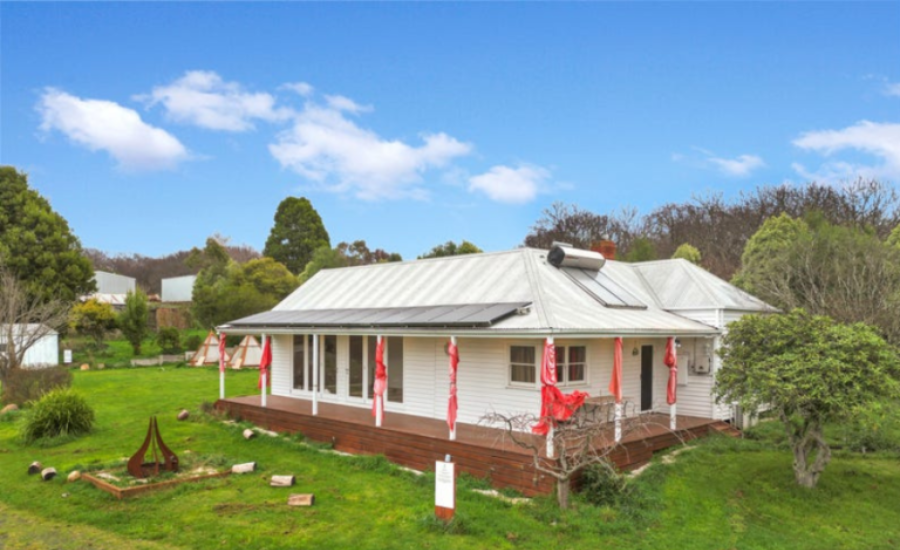
Addressing the complexities surrounding mining cabins in Nevada that are not patented but still subject to taxes requires a close look at the unique legal and regulatory framework governing these structures. Cabins built on unpatented mining claims face a distinct set of rules compared to those on patented claims, and understanding these differences is key to navigating their legal and financial responsibilities.
Tax Obligations For Non-Patented Mining Cabins
Even though unpatented claims remain under federal ownership, Nevada law requires certain taxes to be paid on improvements made to these claims, such as mining cabins. This creates a complicated scenario where miners and cabin owners must adhere to both state and federal regulations.
- Property Taxes: In Nevada, any structures or improvements made to land under unpatented mining claims—such as cabins—can be subject to property taxes. Although the miners do not own the land itself, they are still responsible for paying taxes on the cabins or other enhancements they build. This arrangement can prove particularly challenging for miners who face financial uncertainty due to the inherently volatile nature of the mining industry.
- Mining Taxes: On top of property taxes, miners working on unpatented claims may also be required to pay mining-specific taxes. These taxes are typically calculated based on the extraction and sale of minerals from the claim, adding an additional financial burden for miners already dealing with fluctuating revenue streams.
- Permit Fees: Building and maintaining cabins on unpatented claims often requires securing permits, which come with their own set of fees. These permits are essential for ensuring that cabins comply with both safety and environmental regulations, but the costs can add up, further straining the financial resources of miners.
This layered regulatory environment creates significant financial obligations for miners and cabin owners working on unpatented claims in Nevada, making it essential for them to fully understand both state and federal laws to manage their operations effectively.
Economic Impact Of Mining Cabins In Nevada
Mining cabins, whether patented or unpatented, play a notable role in shaping the local economies of Nevada’s rural communities. These structures not only serve as essential hubs for mining operations but also contribute to the economic ecosystem in multiple ways.
Job Creation and Economic Support
Mining, regardless of its scale, fosters employment across various sectors, and mining cabins are often integral to this process. The presence of these cabins bolsters local economies through several key areas:
- Construction and Maintenance: The building and upkeep of mining cabins create opportunities for local contractors, craftsmen, and skilled laborers. These projects, whether for initial construction or ongoing maintenance, offer consistent work in communities that might otherwise have limited job options.
- Supply and Equipment Sales: Mining activities also drive demand for tools, equipment, and other essential supplies. Local businesses specializing in these products benefit directly from miners needing resources for both day-to-day operations and maintaining their cabins.
- Tourism and Recreational Opportunities: Interestingly, many historic mining cabins have become tourist attractions, drawing visitors curious about Nevada’s mining past. These cabins, often preserved as heritage sites, invite history buffs and outdoor enthusiasts alike. The resulting tourism boosts local hospitality businesses, including hotels, restaurants, and recreational services, injecting additional revenue into small towns near mining regions.
Challenges Faced by Mining Cabin Owners
While owning a mining cabin can provide several economic benefits, miners who own cabins on unpatented claims in Nevada encounter unique challenges.
Financial Strain
The costs associated with maintaining a mining cabin on unpatented land can be a significant burden. Owners are required to pay property taxes on the improvements, like cabins, even though they do not own the land itself. This can be financially taxing, especially for small-scale miners operating with limited resources. The combination of taxes, permit fees, and operational costs often forces miners to evaluate whether they can afford to continue using these structures, potentially leading to decisions about selling or abandoning the cabin.
Legal Complexities And Risks
Mining cabin owners must navigate a complex legal landscape. Structures on unpatented claims are subject to regulations enforced by the Bureau of Land Management (BLM), and non-compliance can lead to penalties, including the forfeiture of the mining claim. Cabin owners must also contend with potential disputes over claim boundaries or the legitimacy of certain structures, which can lead to costly legal battles. Staying compliant with both federal and state laws is essential to avoid these risks and protect their investments.
Overall, while mining cabins contribute economically, they also come with a set of financial and legal responsibilities that owners must manage carefully to sustain their operations.
Reasons Miners Choose Not To Patent Their Cabins
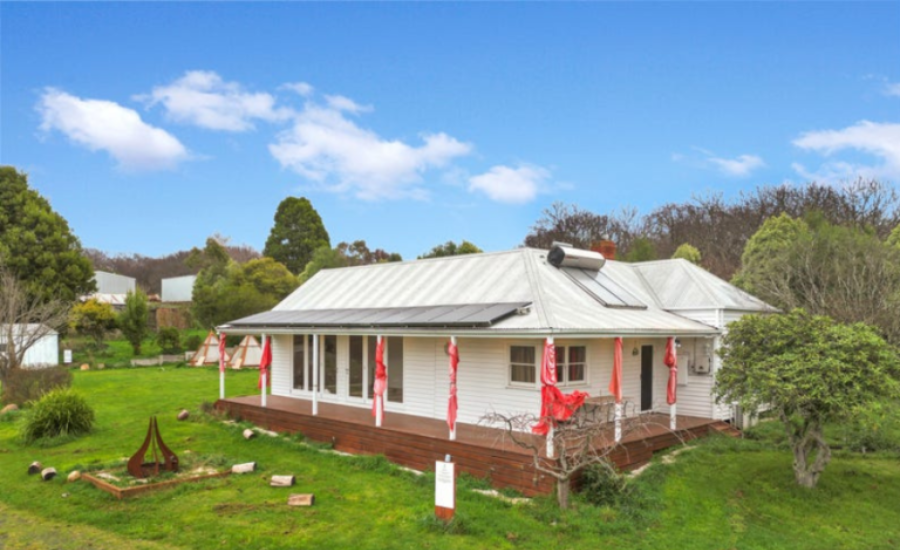
Many miners opt against patenting their cabins for several practical reasons, primarily related to financial and legal considerations.
Financial Considerations
The costs associated with obtaining a patent can be substantial. This process involves various fees and ongoing maintenance expenses, which can be particularly burdensome for miners already operating on tight budgets. For many, the investment required for patenting outweighs the perceived benefits.
Complexity of Legal Processes
The patenting procedure entails a significant amount of paperwork and often results in lengthy approval timelines. Miners frequently prefer to dedicate their time and energy to actual mining operations instead of navigating the complexities of bureaucratic requirements.
Established Land Use Rights
In some areas, miners feel that existing land use rights provide adequate security without the need for formal patent protection. For these individuals, maintaining a cabin without a patent suffices for their everyday operational needs.
Transience of Mining Operations
The inherently transient nature of mining work also contributes to the decision against securing patents. Many miners frequently shift between sites, making it impractical to invest in permanent ownership of cabins that may not be utilized year-round. This fluid lifestyle often discourages them from pursuing patents.
Taxation Process For Mining Cabins In Nevada
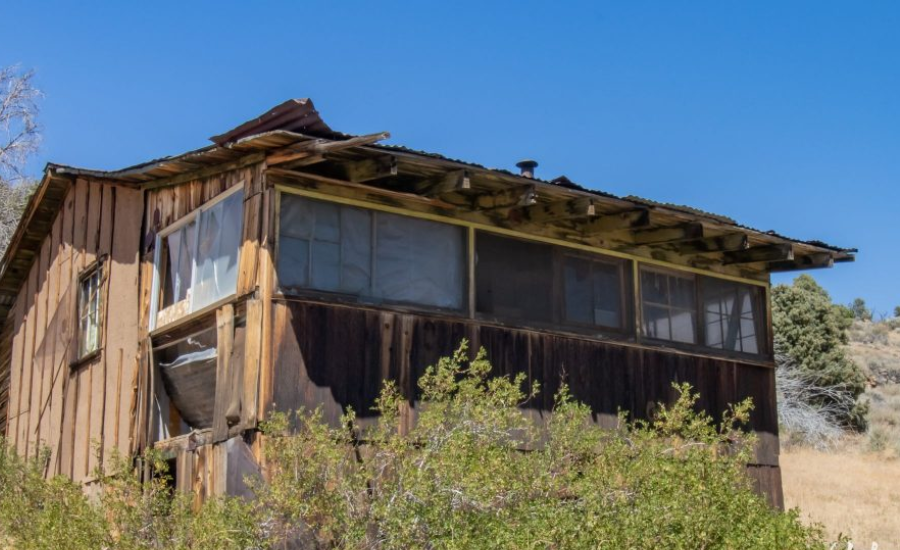
Mining cabins in Nevada are subject to a distinct taxation framework that aligns with their unique status. Unlike many properties that require formal patents, these cabins often operate outside traditional regulatory paths.
Assessed Value and Usage-Based Taxation
Cabins are typically taxed based on their assessed value and how they are utilized. This necessitates that owners remain compliant with local regulations while accurately evaluating their tax obligations.
The state employs an annual property tax system for these structures, making it essential for cabin owners to stay updated on changing tax rates and regulations each year.
Role of County Assessors
County assessors play a vital role in determining the tax owed on mining cabins. They consider various factors such as the cabin’s location, size, and condition when assessing its value.
This taxation approach can pose challenges for miners who rely on these cabins for shelter and work but still face financial liabilities linked to taxes despite lacking formal patent protections. Grasping this taxation landscape is crucial for effectively managing costs.
Impact On Miners And Local Communities
Mining cabins are invaluable to miners in Nevada, providing essential shelter and a sense of stability amidst the challenging environment. Without these structures, many miners would struggle to find safe resting places during their long hours of work.
Community Connections
The presence of mining cabins also fosters strong connections within local communities. These cabins facilitate social interactions and support networks among miners, which can enhance overall morale and productivity within mining areas.
Contribution to Local Economies
Additionally, the taxes collected on these cabins contribute to vital community resources. Local governments can utilize this revenue to fund essential services, including schools, roads, and public facilities.
However, challenges arise regarding maintenance and infrastructure surrounding non-patented properties. The lack of formal legal recognition can lead to confusion regarding ownership responsibilities among cabin owners.
As both miners and communities adapt to evolving regulations and economic pressures, this dynamic will continue to develop, impacting the relationship between mining operations and local populations.
FAQs About Mining Cabins Not Patented But Pay Taxes in Nevada QUI
1. What is the difference between patented and unpatented mining claims?
Patented mining claims grant complete ownership rights to the land, allowing miners to construct cabins and utilize the land as they wish. Unpatented claims, however, allow miners to explore and extract minerals without owning the land itself, which remains federally owned.
2. Do I have to pay taxes on cabins built on unpatented claims?
Yes, even though the land is federally owned, Nevada state law requires cabin owners on unpatented claims to pay property taxes on improvements made, such as cabins.
3. What kind of taxes apply to mining cabins?
Mining cabins may incur property taxes based on their assessed value, as well as specific mining taxes related to mineral extraction and sales. Cabin owners must stay informed about local regulations to ensure compliance.
4. Are there legal risks associated with owning a cabin on an unpatented claim?
Yes, cabin owners must adhere to regulations set forth by the Bureau of Land Management (BLM). Failure to comply can lead to penalties, including potential loss of the mining claim and legal disputes over claim boundaries.
5. Why might miners choose not to patent their cabins?
Miners may avoid patenting due to the significant costs involved, the complexity of the patenting process, the adequacy of existing land use rights, and the transient nature of mining work.
Conclusion
Mining cabins in Nevada play a vital role in both the mining industry and local communities. While they provide essential shelter and support for miners, the complexities of taxation and legal requirements present unique challenges, particularly for those on unpatented claims. Understanding the distinction between patented and unpatented claims, the financial responsibilities associated with cabin ownership, and the potential community impacts is crucial for miners navigating this landscape. As regulations continue to evolve, miners must remain informed and adaptable to ensure their operations and cabins contribute positively to their livelihoods and the local economy.
Read Next: Webofbuzz

